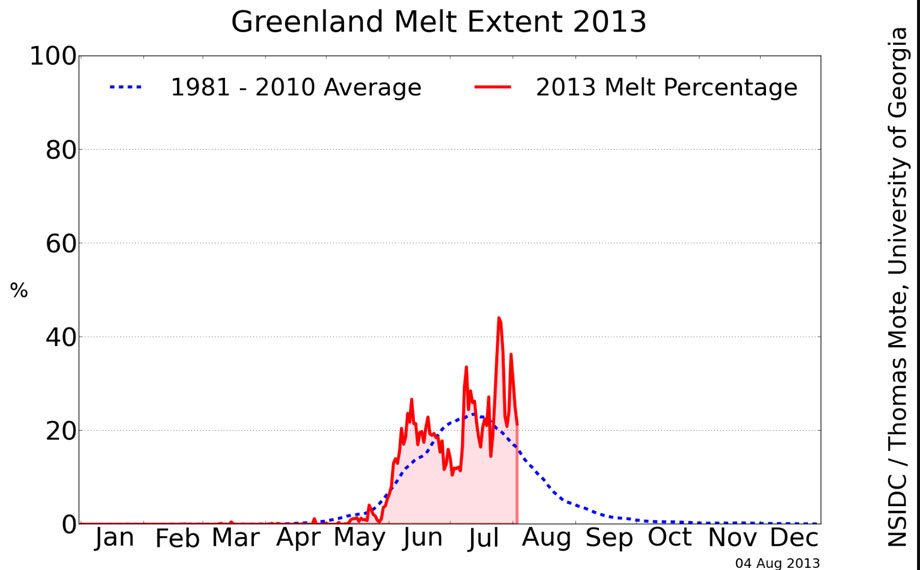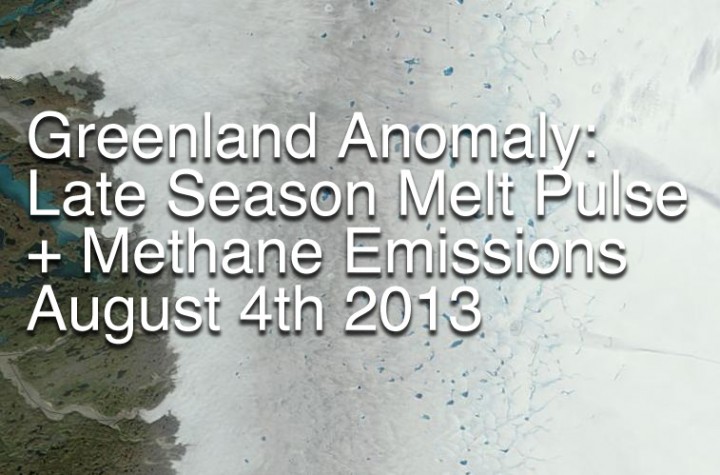Greenland Anomaly: Late Season Melt Pulse + Methane Emissions
Extensive dark snow, very large melt lakes A strong, late-season […]
Date Posted:
August 5, 2013
Extensive dark snow, very large melt lakes
A strong, late-season melt pulse continued over the Greenland ice sheet this weekend as melt covered a much greater portion of the ice sheet than is typical for this time of year. As of late July, the area of the Greenland ice sheet subject to melt had spiked to nearly 45%. Soon after, a second melt spike to around 38% followed. Over the past two weeks, melt area coverage has fluctuated between 5 and 25 percentage points above the seasonal average for this time of year, maintaining at or above the typical melt season maximum of around 25% for almost all of this time. http://robertscribbler.wordpress.com/2013/08/05/extensive-dark-snow-very-large-melt-lakes-visible-over-west-slope-of-greenland-as-late-season-melt-pulse-continues/

- Sat Image source: NSIDC http://nsidc.org/greenland-today/
- Methane visualization 4th August 2013 MODIS Terra & Aqua (MODIS Combined Value-Added) Aerosol Optical Depth via http://www.methanetracker.org/
- Further reading http://www.meltfactor.org/blog/

[…] Prokaryotes (think about the name) was kind enough to produce the following video of this blog on hi…. I’ve linked the YouTube version here: […]
Got a transcript? One “affected” probably should be read “effected”
You can read the entire article here http://robertscribbler.wordpress.com/2013/08/05/extensive-dark-snow-very-large-melt-lakes-visible-over-west-slope-of-greenland-as-late-season-melt-pulse-continues/
interesting overview, but please, do not use anymore those awfull synthetic voices, it’s a real pain for ears and intelligence ;)
Well, i have only so much resources and text to speech widgets help to streamline, however i will consider your input and will try to improve the voice.